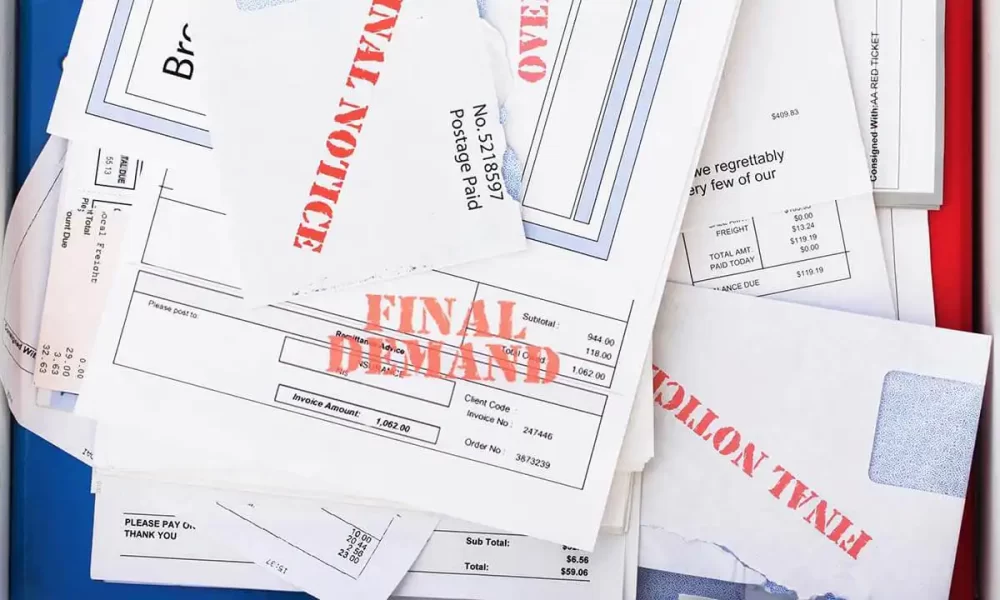Business
Opinion: Why aren’t your cannabis customers paying you?

California cannabis companies’ recent attempts to recoup substantial debts have many in the industry asking: How did this credit crisis happen, and how can my company prevent similar issues?
The problem with extending credit is that unless you evaluate the credit worthiness of a company you are extending credit to, you may be taking an unreasonable risk.
One issue is that most cannabis companies that are extending credit do not have a formal “accounts receivable” or “credit” department to help manage the order-to-cash process.

These facilities exist to ensure that customers are held to their credit terms and that payments are collected in a timely manner.
Not having these controls is probably the biggest mistake a cannabis company can make.
If you are extending credit, you must have a process in place to manage and ensure consistent cash flow to meet your company’s operating needs.
Here are four things that you need to consider if you want to extend credit and get paid for your products and services:
1. Hire an accounts receivable/credit manager
If you are going to extend credit, you need to hire a credit manager to oversee the credit-granting process, including developing and consistently applying the company’s credit policy, as well as managing and collecting the accounts receivable and the dispute-resolution process.
Periodically, the credit and collections manager will also review the credit status of existing customers and be responsible for evaluating the creditworthiness of potential customers.
The net result: increased sales, fewer bad debts, and a better bottom line.
2. Implement a credit application and credit-approval process
A credit application is a contract between buyer and seller. It provides basic information about your customer’s business and is one of the primary tools available for protecting your company and controlling credit risk.
Even customers who pay COD (cash on delivery) should fill out a credit application.
Securing a credit application does not guarantee payment, but it is one of the more significant documents to assist in making good credit decisions and collecting past-due accounts receivable and collection fees.
One of the biggest challenges to the cannabis market is making good credit decisions.
In the traditional B2B market, sellers have the luxury of access to credit data on both public and private companies through leading credit bureaus like Dun & Bradstreet, Experian and Creditsafe.
While none of these providers have cannabis-specific data, many are now gathering data about the cannabis market and have trade lines, UCC (Uniform Commercial Code), lawsuits and tax lien data available.
The No. 1 reason a small business fails is not paying taxes, and the leading credit bureaus all have monitoring and alert services to track this information.
3. Implement a collection strategy
In the traditional B2B trade credit world, if a customer has Net-30 payment terms, and they have not paid by day 31, they are considered past due and delinquent.
Mainstream companies have collection strategies detailing how to deal with customers that are past due and severely past due.
If you are extending Net-30 terms, when a customer is 90 days past due, they are considered seriously delinquent.
Given the volatile nature of California’s cannabis market, we believe a customer that is 60 days past due should be considered severely delinquent.
Here is a sample collection strategy to help manage a customer on credit terms:
- Five days before the invoice is due, an email is sent out with copies of the outstanding invoices.
- The day before the invoice is due, an email reminder is sent with a link to pay online as well as details about where to send a payment.
- On day 31, if the invoice is not paid, an email goes out letting the customer know that they are now past due.
- On day 35, if the invoice is not paid, a phone call is made to collect payment.
- On day 40, an email demand is sent and a phone call is made.
- On day 47, an email demand is sent and a phone call is made.
- On day 52, a “past due” email is sent
- On day 60, a “final demand” email is sent, letting the customer know that if payment is not received within 10 days, the account will be referred to a collection agency.
- On Day 70, if no payment has been received, the account is sent to a collection agency.
4. Have a formal policy that moves nonpaying customers to collection
In the B2B collection market, average gross recoveries are in the 35% to 40% range, and the average account is placed at around 150 days past due.
In the cannabis market, however, recoveries are in the 15% to 20% range, and the average collections placement is 285 days past due.
Why?
Most debt in the cannabis market is uncollectable because companies do not have good internal collection strategies and hold on to nonpaying customers far too long.
Many times, when a placement is that delinquent, the customer is already out of business or uncooperative, and the only recourse is litigation.
Here are five signs that your cannabis customer may need to be placed for collection:
- Your customer is over 60 days past due.
- Your customer is not returning your phone calls or emails.
- Your customer is purchasing erratically.
- Your customer has stopped buying.
- You receive negative trade information about the customer from other suppliers.
About 50% of payment issues are caused by companies not having the right process and people in place to manage order to cash.
To make sure your cannabis customers will pay you, implement the above four steps, and you should see a big difference in a short period of time.
Source: https://mjbizdaily.com/why-arent-your-cannabis-customers-paying-you/